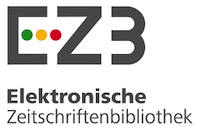Organizational resilience in the context of COVID-19: the case of two Colombian MSMEs
Resiliencia organizacional en contexto de la COVID-19: el caso de dos mipymes colombianas
##plugins.themes.bootstrap3.article.main##
Objective. To explore the relationship between organizational resilience and the evolution of two Colombian MSMEs in the transportation and tourism sectors since the beginning of the crisis context generated by COVID-19 until the economic reopening decreed by the national government. Methodology. The methodology used in this study follows a qualitative approach based on two cross-sectional case studies. Results. The findings help to clarify the relationship among the company’s factors that condition resilience, the resilience actions implemented and the evolution of the organization in a crisis context.
Conclusions. Adaptation is an inherent outcome of resilient organizations, but firm renewal is not. Renewal in critical contexts may be influenced by the firm’s resilience actions, the factors conditioning resilience, the magnitude of the crisis, and the firm’s financial resources and previous experiences in coping with it.
Downloads
##plugins.themes.bootstrap3.article.details##
Abatecola, G. (2012). Organizational adaptation: an update. International Journal of Organizational Analysis, 20(3), 274-293. https://doi.org/10.1108/19348831211243802 DOI: https://doi.org/10.1108/19348831211243802
Arellana, J., Márquez, L. and Cantillo, V. (2020). COVID-19 Outbreak in Colombia: An Analysis of Its Impacts on Transport Systems. Journal of Advanced Transportation, 1-16. https://doi.org/10.1155/2020/8867316 DOI: https://doi.org/10.1155/2020/8867316
Banco Mundial. (2020). La COVID-19 (coronavirus) hunde a la economía mundial en la peor recesión desde la Segunda Guerra Mundial. Recuperado de https://www.bancomundial.org/es/news/ press-release/2020/06/08/covid-19-toplunge-global-economy-into-worst-recessionsince-world-war-ii.
Bhamra, R., Dani, S. and Burnard, K. (2011). Resilience: the concept, a literature review and future directions. International Journal of Production Research, 49(18), 5375-5393. https://doi.org/10.1080/00207543.2011.563826 DOI: https://doi.org/10.1080/00207543.2011.563826
Carnevale, J.B. and Hatak, I. (2020). Employee adjustment and well-being in the era of COVID-19: Implications for human resource management. Journal of Business Research, 116, 183-187. https://doi.org/10.1016/j.jbusres.2020.05.037 DOI: https://doi.org/10.1016/j.jbusres.2020.05.037
CEPAL. (2020). Impactos de la pandemia en los sectores productivos más afectados abarcarán a un tercio del empleo y un cuarto del PIB de la región. Recuperado de https://www.cepal.org/es/comunicados/impactos-la-pandemiasectores-productivos-mas-afectadosabarcaran-un-tercio-empleo-un.
Fabeil, N.F., Pazim, K.H. and Langgat, J. (2020). The impact of Covid-19 pandemic crisis on microenterprises: Entrepreneurs' perspective on business continuity and recovery strategy. ournal of Economics and Business, 3(2), 837-844. DOI: https://doi.org/10.31014/aior.1992.03.02.241
Hamel, G. and Valikangas, L. (2003). The quest for resilience. Harvard Business Review, 81(9), 52. Hillmann, J. and Guenther, E. (2021). Organizational Resilience: ¿A valuable construct for management research? International Journal of Management Reviews, 23(1), 7-44. DOI: https://doi.org/10.1111/ijmr.12239
Kantur, D. and Arzu, Í.S. (2012). Organizational Resilience: A conceptual integrative framework.ournal of Management and Organization, 18(6), 762-773. DOI: https://doi.org/10.1017/S1833367200000420
https://doi.org/10.5172/jmo.2012.18.6.762 DOI: https://doi.org/10.5172/jmo.2012.18.6.762
Kelliher, F. and Reinl, L. (2009). A resource-based view of micro‐firm management practice. Journal of Small Business and Enterprise Development, 16(3), 521-532.
https://doi.org/10.1108/14626000910977206 DOI: https://doi.org/10.1108/14626000910977206
La República. (16 de febrero de 2021). La caída de 6,8% del Producto Interno Bruto de 2020 fue la peor de la historia del país. Recuperado de https://www.larepublica.co/economia/ la-caida-de-68-del-producto-interno-brutode-2020-fue-la-peor-de-la-historia-delpais-3125632.
Lengnick-Hall, C., Beck, T. and Lengnick-Hall, M. (2011). Developing a capacity for organizational resilience through strategic human resource management. Human Resource Management Review, 21(3), 243-255. https://doi.org/10.1016/j.hrmr.2010.07.001 DOI: https://doi.org/10.1016/j.hrmr.2010.07.001
Losada, C., Scaparra, M.P. and O'Hanley, J.R. (2012). Optimizing system resilience: a facility protection model with recovery time. European Journal of Operational Research, 217(3), 519- 530. https://doi.org/10.1016/j.ejor.2011.09.044 DOI: https://doi.org/10.1016/j.ejor.2011.09.044
Lussier, R.N. and Sonfield, M.C. (2015). "Micro"versus "small" family businesses: a multinational analysis. Journal of Small Business and Enterprise Development, 22(3), 380-396. https://doi.org/10.1108/JSBED-02-2015-0029 DOI: https://doi.org/10.1108/JSBED-02-2015-0029
Ma, Z., Xiao, L. and Yin, J. (2018). Toward a dynamic model of organizational resilience. Nankai Business Review International, 9(3), 246-263.
https://doi.org/10.1108/NBRI-07-2017-0041 DOI: https://doi.org/10.1108/NBRI-07-2017-0041
Mallak, L. (1998). Technology-Based Organizations 2. En Portland International Conference on Management of Engineering and Technology, Portland, Oregon, USA.
Medina, C. (2012). La resiliencia y su empleo en las organizaciones. Gestion y Estrategia, 41, 29-39. Mcmanus, S. et al. (2008). Facilitated Process for Improving Resilience. Natural Hazards Review, 9, 81-90. https://doi.org/10.24275/uam/azc/dcsh/gye/2012n41/Medina DOI: https://doi.org/10.24275/uam/azc/dcsh/gye/2012n41/Medina
Ministerio de Comercio, Industria y Turismo. (2020). El turismo en cifras diciembre 2020. Recuperado de https://www.mincit.gov. co/getattachment/estudios-economicos/ estadisticas-e-informes/informes-deturismo/2020/noviembre/oee-np-turismonoviembre-26-01-2021.pdf.aspx.
Papadakis, V.M. and Barwise, P. (2002). How much do CEOs and top managers matter in strategic decision-making? British Journal of Management, 13(1), 83-95.
https://doi.org/10.1111/1467-8551.00224 DOI: https://doi.org/10.1111/1467-8551.00224
Peláez-León, J.D. (2021). MiPymes familiares y no familiares en tiempos de COVID-19. Bitácora Económica, 11(1), 17-23.
Pérez, W. y Martínez, M. (2013). Estudio de casos. En Sarabia, F.J. (Ed.), Métodos de la investigación social y de la empresa (pp. 645-671). Madrid, España: Ediciones Pirámide.
Portafolio. (2020). Los sectores con mayor riesgo de pérdida de empleo por el COVID-19. Recuperado de https://www.portafolio.co/economia/lossectores-con-mayor-riesgo-de-perdida-deempleo-por-el-covid-19-540483.
Portafolio. (2020). Pérdidas del transporte público especial ascienden a los $2,5 billones. Recuperado de https://www.portafolio.co/negocios/perdidas-del-transporte-publicoespecial-ascienden-a-los-2-5-billones-542914.
Portafolio. (2020). Turismo: de récord en 2019 a caída sin precedentes en 2020. Recuperado de https://www.portafolio.co/economia/ turismo-de-record-en-2019-a-caida-sinprecedentes-en-2020-547654.
Prayag, G. (2020). Time for reset? COVID-19 and tourism resilience. Tourism Review International, 24(2-3), 179-184.
https://doi.org/10.3727/154427220X15926147793595 DOI: https://doi.org/10.3727/154427220X15926147793595
Rai, S.S., Rai, S. and Singh, N.K. (2021). Organizational resilience and social-economic sustainability: COVID-19 perspective. Environment, Development and Sustainability, 23(4), 12006-12023. https://doi.org/10.1007/s10668-020-01154-6 DOI: https://doi.org/10.1007/s10668-020-01154-6
Rapaccini, M. et al. (2020). Navigating disruptive crises through service-led growth: The impact of COVID-19 on Italian manufacturing firms. Industrial Marketing Management, 88, 225-237. Santoro, F. (31 de enero de 2019). La hora del turismo para Colombia. La República. Recuperado de https://www.larepublica.co/analisis/flaviasantoro-2807402/la-hora-del-turismo-paracolombia-2822338. https://doi.org/10.1016/j.indmarman.2020.05.017 DOI: https://doi.org/10.1016/j.indmarman.2020.05.017
van der Vegt, G.S. et al. (2015). From the editors. Managing Risk and Resilience. Academy of Management Journal, 58(4), 971-980. https://doi.org/10.5465/amj.2015.4004 DOI: https://doi.org/10.5465/amj.2015.4004



































